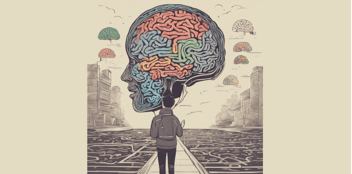The Psychiatrist as Psychotherapist
- Home
- Blog

Many psychiatrists are expert at prescribing medications to treat the variety of symptoms that accompany the cognitive, emotional and behavioral problems that afflict their clients. Why do fewer psychiatrists engage in psychotherapy as well? One reason is that newer generations of psychiatrists were trained in residency programs that were heavily influenced by the “Psychopharmacologic Revolution.”
For much of the twentieth century psychiatry had few medications to offer, and those that were available had significant side effects, and poorly targeted the underlying symptoms of anxiety, depression, ADHD, psychosis, and substance abuse that bring about emotional pain. Prior to the “Revolution,” psychiatry was considered the “black sheep” of medicine – looked down upon as “voodoo science” by our medical colleagues – and occupying the bottom rung of respectability among medical specialties. Some doctors even questioned why psychiatrists needed to graduate from medical school, as their practices were almost exclusively oriented toward psychotherapy.
All of that changed with the Psychopharmacologic Revolution, as first generation medications were introduced and found to be effective, and second generation medications were equally or more efficacious with far fewer side effects. Psychiatry rapidly and dramatically began to achieve documented positive outcomes that rivaled or exceeded most of the other fields of medicine, exerting a profound effect on psychiatric training programs, as this newfound “respectability” dramatically transformed these programs into a biologically-oriented curriculum focused almost exclusively on medication management. At the same time, managed care companies were providing negative financial incentives for psychiatrists to perform psychotherapy. The net effect is that newer generations of psychiatrists are not as solidly grounded in the fields of psychotherapy as their predecessors.
Those psychiatrists trained in “The Golden Age of Psychiatry” received intensive training in various modalities of psychotherapy, such as psychodynamic, cognitive-behavioral, and family systems; as well as learning the science of psychopharmacology. These fortunate physicians are able to evaluate and treat the whole person, including the ability to address biological, psychological, social/environmental, and existential issues throughout the course of therapy with their clients, according to the Biopsychosocial Model.
There are many fine non-medical therapists who work closely with psychiatrists to support the medical aspects of treating their clients. What is unique about the psychiatrist as psychotherapist is his or her capacity to integrate a knowledge base comprising neurobiology, general medicine, the unconscious, behavioral science, family systems, workplace/environmental stressors, and nutrition, to design and implement holistic treatment plans. These doctors utilize the latest psychopharmacologic science combined with an eclectic use of psychotherapy, to help provide symptom relief and put an end to the self-sabotaging behaviors that serve to undermine personal growth and diminish the quality-of-life of their clients. As physicians, psychiatrists have received broad training in the science and art of general medicine, surgery, neurology, and other medical specialties in addition to their psychiatric training – including decisions that involve life and death responsibility – which adds another dimension to the psychotherapy that they provide. It is truly a gift for those of us psychiatrists who were trained during “The Golden Age,” to have the privilege of being able to care for the whole person.
Related Information
- Learn about Genetic Testing
- Learn about Potomac Psychiatry
- Meet Our Doctors
- Contact Potomac Psychiatry
.png?width=144&height=144&name=Untitled%20design%20(34).png)



